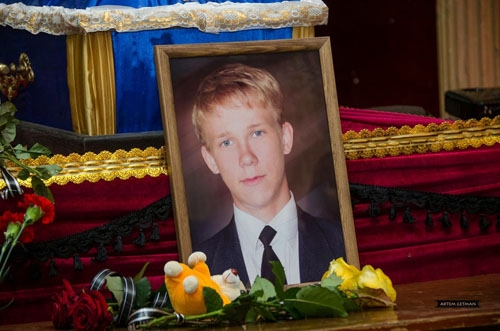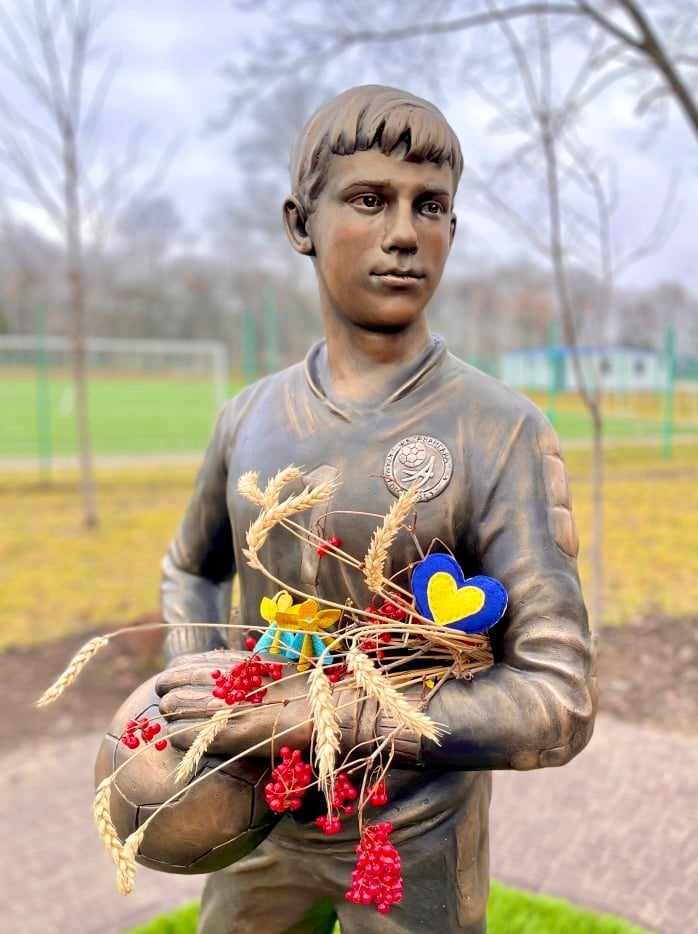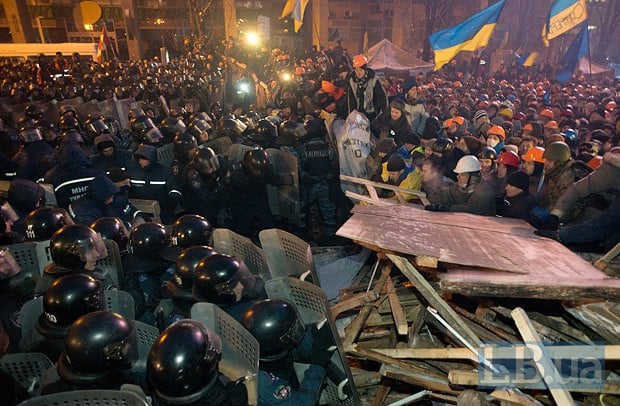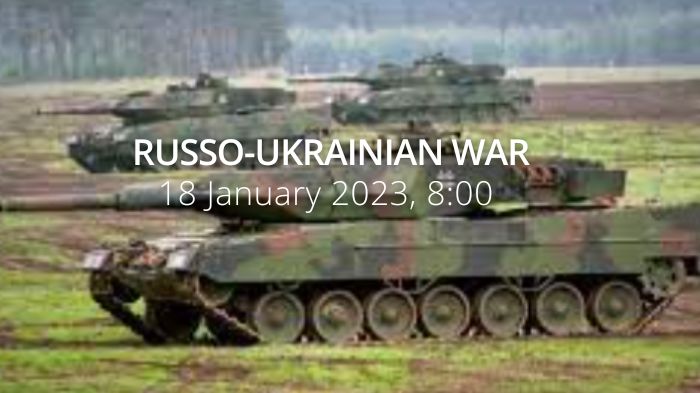Weekend in the war zone
On 10 December 2021, Russian-hybrid forces launched six attacks on Ukrainian positions in Donetsk, Luhansk, and Mariupol sectors, including heavy artillery and weapons banned by Minsk, according to Ukraine’s Joint-Forces Operation Staff (JFO).
On 11 December, JFO reported, three attacks on Ukrainian positions took place in Pishchane, Kamyanka, and Katerynivka, also using heavy artillery and weapons banned by Minsk. One Ukrainian soldier was wounded.
On 12 December, the Russian-hybrid forces launched four more attacks, some of which with proscribed weapons. One Ukrainian soldier was seriously injured in a mine blast.
As of 19:30 December 9, OSCE’s Special Monitoring Mission (SMM) recorded 1,463 violations, including 142 explosions in Donetsk Oblast; 161 violations, including 97 explosions in Luhansk Oblast. Russian proxies denied OSCE SMM passage near Zolote and Molodizhne, Luhansk Oblast, and delayed passage for two hours near Olenivka, Donetsk Oblast. As of 19:30 Dec 10, OSCE SMM recorded 842 violations, including 78 explosions in Donetsk Oblast; 8 violations, including one explosion in Luhansk Oblast.
- President Volodymyr Zelenskyy gave an interview on the 1+1 TV channel, hinting at a possibility of a referendum concerning occupied Donbas, and was not ready to talk about the so-called coup which he had previously announced for 1 December but it didn’t happen.
- In event of invasion, Russia won’t bomb Kyiv or strategic facilities; it will target Armed Forces in the Donbas, seize territory and force Ukraine to make political concessions, says head of Ukrainian military portal Taras Chmut.
- Russia imposed restrictions on navigation in 70% of the Azov Sea and an announced artillery fire drill close to Mariupol, Berdiansk, and Henichesk, the press service of Ukrainian Navy Command reported.
- G7 countries discussed the build-up of Russian forces near Ukraine’s borders at the Liverpool summit. US State Department says G7 countries “stand united” in face of a possible Russian invasion of Ukraine.
- Ukrainian-Turkish plant has been under construction in Kyiv Oblast to produce ANKA-type drones.
- Assistant Secretary for Bureau of European & Eurasian Affairs, Dr. K. Donfried is going to travel to Kyiv and Moscow on 13-15 December to meet with senior government officials in order to discuss Russia’s military buildup and reinforce the US commitment to Ukraine’s sovereignty, independence, and territorial integrity.
- The best response is to refuse the launch of NordStream 2, said Polish PM Mateusz Morawiecki.
- Putin and Biden have agreed to hold more talks amid tensions over Russian troop build-up near Ukraine.
Key Donbas militant asserts that Russia killed “Donetsk republic” leader appointed by Putin aide
Igor Girkin, the ‘former’ Russian FSB officer who helped Russia seize Crimea and bring war to the Donbas, has yet again overturned Russia’s narrative about the conflict in Ukraine. In the latest of many interviews, Girkin has stated that it was Moscow that organized the killing of Alexander Zakharchenko, leader of the so-called ‘Donetsk people’s republic’ (DNR) on 31 August 2018.
- Read also: “Donetsk People’s Republic” leader Zakharchenko killed in explosion. Details and versions (2018)
Germany blocks delivery of anti-drone jamming guns to Ukraine
In November, Berlin vetoed Ukraine’s purchase of anti-drone rifles and anti-sniper systems through a NATO procurement agency. Germany later softened its position only regarding the first item, declaring anti-drone rifles non-lethal weapons. This appears to be a continuation of an unofficial western European arms embargo on Ukraine that has been in place since 2008.
Germany blocks Ukraine’s arms purchase from NATO as unofficial arms embargo on Ukraine continues
Fallen “cyborg” of Donetsk Airport Battle becomes Hero of Ukraine
On the eve of the Day of the Armed Forces of Ukraine, 6 December 2021, President Volodymyr Zelenskyy awarded the title of Hero of Ukraine to Petro Polytsiak, one of Ukraine’s legendary Cyborgs of Donetsk Airport.
Legendary Cyborg “Chorny” posthumously awarded title of Hero of Ukraine
G7, EU vow support for Ukraine, warn Russia against aggression
The foreign ministers of the Group of Seven and the EU High Representative issued a joint statement in support of Ukraine amid Russian military buildup near Ukraine’s borders. “Russia should be in no doubt that further military aggression against Ukraine would have massive consequences and severe cost in response,” the ministers stressed.
They also reaffirmed their support for the efforts of France and Germany in the Normandy format to achieve full implementation of the Minsk Agreements to resolve the conflict in eastern Ukraine.
EU ministers debate ways to shield Ukraine from Russia
European Union foreign ministers on Monday debated ways to counter the threat of a possible new Russian invasion of Ukraine and what measures to take if Moscow decides to send its troops across the border.
“The European Union stands united in support of Ukraine’s sovereignty and territorial integrity,” EU foreign policy chief Josep Borrell said after chairing the meeting. “Any aggression against Ukraine will come with political consequences and with a high economic cost for Russia.”
Borrell said no decisions about sanctions against Russia were taken but that the ministers discussed what measures they might take should an invasion happen and how the EU would coordinate with the United States and Britain.
UK PM calls Putin
In a phone call, Boris Johnson has told Vladimir Putin about his “deep concern” over Russian forces amassing on Ukraine’s border. But he also warned President Putin of “significant consequences” of any “destabilising action” by Russia.
EU sanctions Wagner PMC
The European Union has imposed sanctions on Russian private military contractor Wagner Group, as well as on eight individuals and three other energy companies in Syria accused of helping finance the mercenaries in Ukraine, Libya and Syria.
Ex NATO commander suggests way to discourage Putin from new invasion of Ukraine
James Stavridis, a retired US Navy admiral and former supreme allied commander of NATO, has suggested a four-pronged plan to keep Putin from invading Ukraine, which includes better strategic communications by the US – publicizing more intelligence data, cyberwarfare, economic tools up to disconnecting Russia from SWIFT, providing the Ukrainian military with advanced weapons.
EU does not plan to split Eastern Partnership format, dashing Ukraine’s hopes
The European Union plans to maintain the unity of the Eastern Partnership format, despite requests from Georgia, Moldova, and Ukraine to more clearly separate the “associated trio” into a separate format. European Pravda reported this, citing several high-ranking EU officials involved in the summit, who spoke on condition of anonymity, who spoke to reporters in Brussels.
Brussels believes this will be beneficial for Kyiv. “It is in the interest of all six countries to keep the group together. In addition, it is in the interest of Ukraine, which is the leader of the trio, to maintain leadership in a broader format,” said one European Commission official.
The six Eastern Partnership countries started out with similar intentions, but with time, their positions shifted.
Currently, Belarus has suspended cooperation with Brussels altogether; Armenia and Azerbaijan exclude the signing of Association Agreements and do not cooperate with each other.
Germany restates commitment to halt Nord Stream 2 if Russia invades Ukraine
Germany’s new government has not yet committed to blocking Russia’s Nord Stream 2 gas pipeline, but this weekend gave strong hints that it would be prepared to do so if necessary.
Russia’s fake “republic” in Moldova staged sham elections
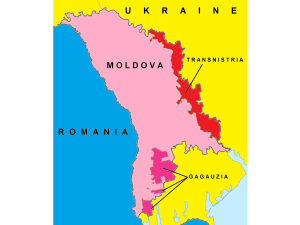
Separatist authorities in Moldova’s Russian-controlled breakaway region of Transnistria were holding a vote to pick a de facto president on 12 December in an election mostly ignored by Chisinau and likely to be poorly attended by would-be voters.
A country sandwiched between EU member Romania and Ukraine, Moldova lost effective control over Transnistria after breakaway leaders declared independence in 1990, which sparked a war between the Moldovan Army and the Transdniestrian rebels backed by Russia over the narrow strip of land between the Dniester River and the Ukrainian border.
Russia coerces Crimeans into military
In Crimea, the Ukrainian peninsula occupied by Russia, local males of eighteen to 27 years of age–who are Ukrainian citizens–have been illegally conscripted into the aggressor’s armed forces against their will. If they resist, the occupier-run “court” system coerces them into military service by imposing heavy fines and/or up to two years of forced labor or imprisonment.
Russia continues to coerce Crimeans into its military and punishes those that resist
Monument to 16-year-old Stepan Chubenko was recently unveiled in Kramatorsk, Donetsk Oblast
Stepan Chubenko was an avid sports fan and played as a goalkeeper with the Avanhard Kramatorsk football team. With the onset of the war, Stepan and his friends took part in rallies in support of Ukraine.
Russian proxies seized the city in April 2014. On 23 June 2014, Stepan was violently dragged from the Donetsk train because of the blue-and-yellow ribbon attached to his backpack and the FC Karpaty scarf around his neck. He was brutally beaten, tortured, and executed in cold blood by Russian-led militants of the Kerch battalion.
Kramatorsk was liberated by the Ukrainian Army on 5 July 2014. It was only after several months that Stepan’s mother found his mutilated body. On 8 November 2014, Stepan Chubenko was buried in his hometown.
Now, a monument to him appeared in his native Kramatorsk.
My job gives me drive: The story of an emergency care physician
Doctor Volodymyr Hontar once rushed to save lives in an ambulance. Now he is one of the select few emergency physicians in Ukraine who is doing it faster, in a helicopter.
“You never know what’s waiting for you. One minute you are helping with a heart attack, and 10 minutes later you are in a traffic accident. It can be challenging, but if you love your job then it gives you drive,” the special report from WHO quotes Volodymyr.
History
The assault of Euromaidan on the night of 10-11 December 2013 was an attempt by President Viktor Yanukovych’s regime to wind up Euromaidan protests through a sudden night attack using the special police force Berkut units and interior ministry troops. They focused on displacing the front-line peaceful protesters from lightly barricaded camps at Maidan Nezaleshnosti (Independence Square) and part of Khreshchatyk Avenue. As 4,000-strong Berkut units attacked the square, the bell-ringer of St. Michael’s Golden-Domed Monastery rang the alarm. Eight hours after the beginning of the assault, self-defense units stabilized the Euromaidan perimeter by pushing the Berkut fighters back beyond the barricades.





